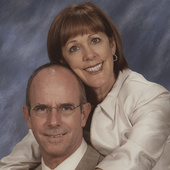Home Safety Council is turning up the heat on home safety risks this winter, when it comes to home heating appliances. Because home heating fires and carbon monoxide poisoning spike during the winter months, both organizations have teamed up to provide critical home heating information to keep families safe in their homes.
"Secondary heat sources can be a cost effective way to keep your family warm and your heating bill lower during the winter months," said Patti Price, Lowe's senior vice president of merchandising for outdoor living. "When taking advantage of space heaters, wood stoves and fire places to keep loved ones warm and heating costs lower, families need to understand how to safely use these secondary heat sources and follow the appropriate safety precautions in order to avoid serious home injuries."
The Home Safety Council's State of Home Safety in AmericaTM report revealed 67 percent of American households use fuel-burning appliances and equipment, such as gas, wood or kerosene that can emit dangerous levels of carbon monoxide if not functioning properly.
"During the months of January and February heating appliance fires overtake cooking fires as the leading cause of home fires, and carbon monoxide dangers are much more common during home heating season," said Meri-K Appy, president of the Home Safety Council. "Families can help reduce their risk of being injured by taking simple actions in and around their homes."
Fire Precautions: Home Heating Safety
Heating equipment, especially portable and space heaters, fireplaces and wood stoves, require careful use and proper maintenance. Together, Lowe's and the Home Safety Council offer the following tips to help families prevent fire- and burn-related injuries this winter.
Space Heaters
- Purchase electric space heaters that bear the mark of an independent testing laboratory, such as UL, ETL, CSA, etc.
- Place space heaters at least three feet away from anything that can burn - including furniture, people, pets and window treatments.
- Turn off space heaters before leaving a room or going to sleep.
- Supervise children and pets at all times when a portable space heater is in use.
- Use kerosene heaters only where permitted by law. Use the recommended grade kerosene and never use an alternative fuel. Kerosene heaters must be fueled outside.
- Never use space heaters to dry clothing or blankets.
Fireplaces and Wood Stoves
- Burn only seasoned hardwood - not trash, cardboard boxes or Christmas trees, because these items burn unevenly, may contain toxins and increase the risk of uncontrolled fires.
- Have a professional chimney sweep inspect chimneys annually for cracks, blockages and leaks and have them cleaned and repaired as needed.
- Keep all persons, pets and flammable objects, including kindling, bedding and clothing, at least three feet away from fireplaces and wood stoves.
- Open flues before fireplaces are used.
- Use sturdy screens or doors to keep embers inside fireplaces.
- Install at least one smoke alarm on every level of your home and inside or near sleeping areas.
- Keep young children away from working wood stoves and heaters to avoid contact burn injuries.
Carbon Monoxide Poisoning Precautions
Carbon monoxide is commonly known as "the silent killer." Because it is colorless, odorless and tasteless, human senses can not detect it. Carbon monoxide poisoning claims the lives of nearly 300 people in their homes each year according to the U.S. Consumer Product Safety Commission (CPSC). Carbon monoxide is a potentially deadly gas that is produced by fuel-burning heating equipment, such as furnaces, wood stoves, fireplaces and kerosene heaters. Follow these guidelines to help keep loved ones safe.
- Install at least one carbon monoxide alarm near sleeping areas.
- Have a trained professional inspect, clean and tune-up your home's central heating system and repair leaks or other problems; fireplaces and woodstoves should also be inspected each year and cleaned or repaired as needed.
- Keep gas appliances properly adjusted and serviced.
- Never use an oven or range to heat your home.
- Never use a gas or charcoal grill inside your home or in a closed garage.
- Portable electric generators must be used outside only. Never use them indoors, in a garage or in any confined area that can allow carbon monoxide to collect. Follow usage directions closely.
For more information on home heating alternatives and ways to stay safe in and around the home, please visit www.homesafetycouncil.org and please play it safe.
We hope you have found this post useful and encourage you to please contact us with any questions, comments and your real estate and relocation needs.
Thanks in advance.
With our highest regard,
Wayne and Lynda Gomillion
"The Pinehurst Home Team"
"The friendship and referrals of those we serve is the foundation of our success.

Comments(0)